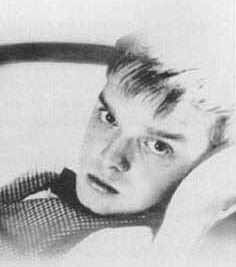 This is in many ways the most extraordinary novel. The blurb on the back by Norman Mailer, of all people, claims Truman Capote to be ‘the most perfect writer of my generation’. High praise indeed. I remember Dorothy Parker writing with great admiration of Truman Capote, saying ‘boy can he write’. His style seems to be that of the ‘born’ writer.
This is in many ways the most extraordinary novel. The blurb on the back by Norman Mailer, of all people, claims Truman Capote to be ‘the most perfect writer of my generation’. High praise indeed. I remember Dorothy Parker writing with great admiration of Truman Capote, saying ‘boy can he write’. His style seems to be that of the ‘born’ writer.What is most amazing is that this novel was published when Capote was only 23. It reminds one of other young gifted southern writers, who specialised in gothic novels. Flannery O’Connor’s Wise Blood and Carson McCullers’ Member of the Wedding come to mind, both written when the authors were in their mid twenties. What on earth was in the air in the American South you wonder, that produced these rich and strange authors?
Other Rooms, Other Voices tells the story of young Joel Knox, who has come to a small town in search of his father. He meets an array of weird characters, most notably, his queer cousin Randolph. The novel seems to make sense for the first 120 pages or so, then becomes dreamlike and hallucinatory for the rest of the novel. Even Joel himself, listening to Randolph’s long monologues, says that nothing that is said makes sense. For example, we are led to believe that Randolph shot Joel’s father, and that is why he is bedridden, but this is never really verified.
In short, the novel is incomprehensible, but written in the most extraordinary style. Some of the passages are breathtaking. I think it was either Plato or Aristotle who said that poets sometimes write things of which they do not know the meaning. Capote himself said the novel was dictated by the clouds, or descended from the clouds, something like anyway. Personally, I don’t think Capote really knows what this novel means either. His other great novel, In Cold Blood, is totally different to this novel, being written in a straight forward, journalistic style.
This is a really strange, yet rewarding novel. Follow Norman Mailer’s advice and read Truman Capote. There is no more perfect prose writer.
No comments:
Post a Comment